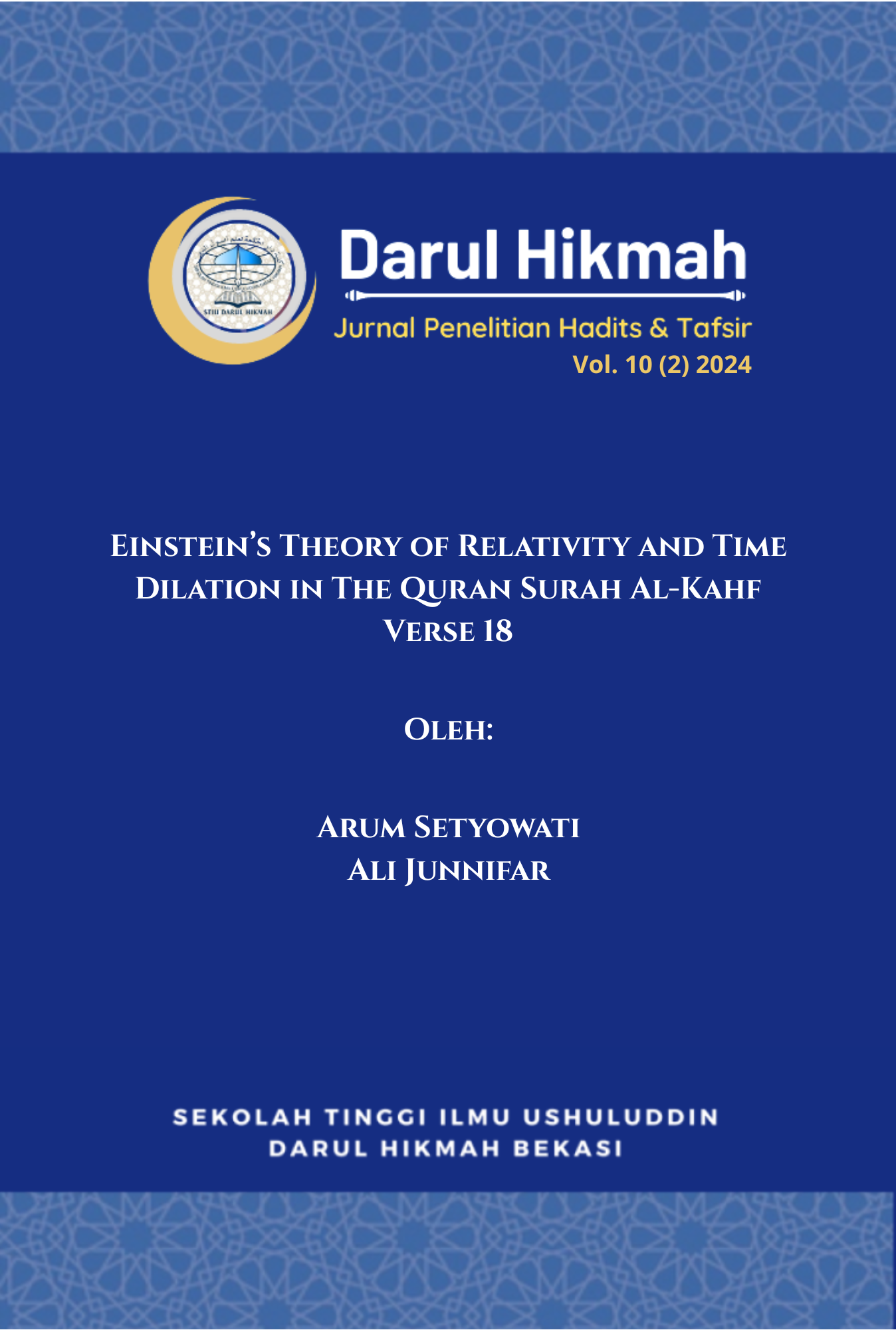Einstein’s Theory of Relativity and Time Dilation in The Quran Surah Al-Kahf Verse 18
DOI:
https://doi.org/10.61086/jstiudh.v10i2.68Kata Kunci:
Relativity, Ashabul Kahf, Science, QuranAbstrak
This study analyzes Einstein's theory of relativity, specifically time dilation, in relation to Surah Al-Kahf (verses 18, 19, and 25) from the Quran. Science plays a vital role in shaping human understanding, and the Quran, as a timeless miracle, contains scientific truths revealed long before modern discoveries. One such truth is the concept of time dilation, reflected in the story of Ashabul Kahf, young believers who slept in a cave for over three centuries. Using a literature review and documentation method, this research explores scholarly and scientific interpretations of how their bodies remained preserved during such a prolonged period. It suggests that the young men may have experienced time differently due to conditions resembling near-light-speed movement, aligning with Einstein’s theory that time slows down at such velocities. The Quran mentions their bodies being turned regularly, which modern medicine confirms as crucial in preventing physical decay during long periods of immobility. Furthermore, the idea that objects near light speed appear shorter and less visible supports the Quranic description of the sleepers being shielded from view and instilling awe in those who passed by. This study concludes that the narrative of Ashabul Kahf illustrates a profound alignment between Quranic revelation and scientific principles, demonstrating the depth of divine wisdom and encouraging further exploration of science through the lens of faith.













